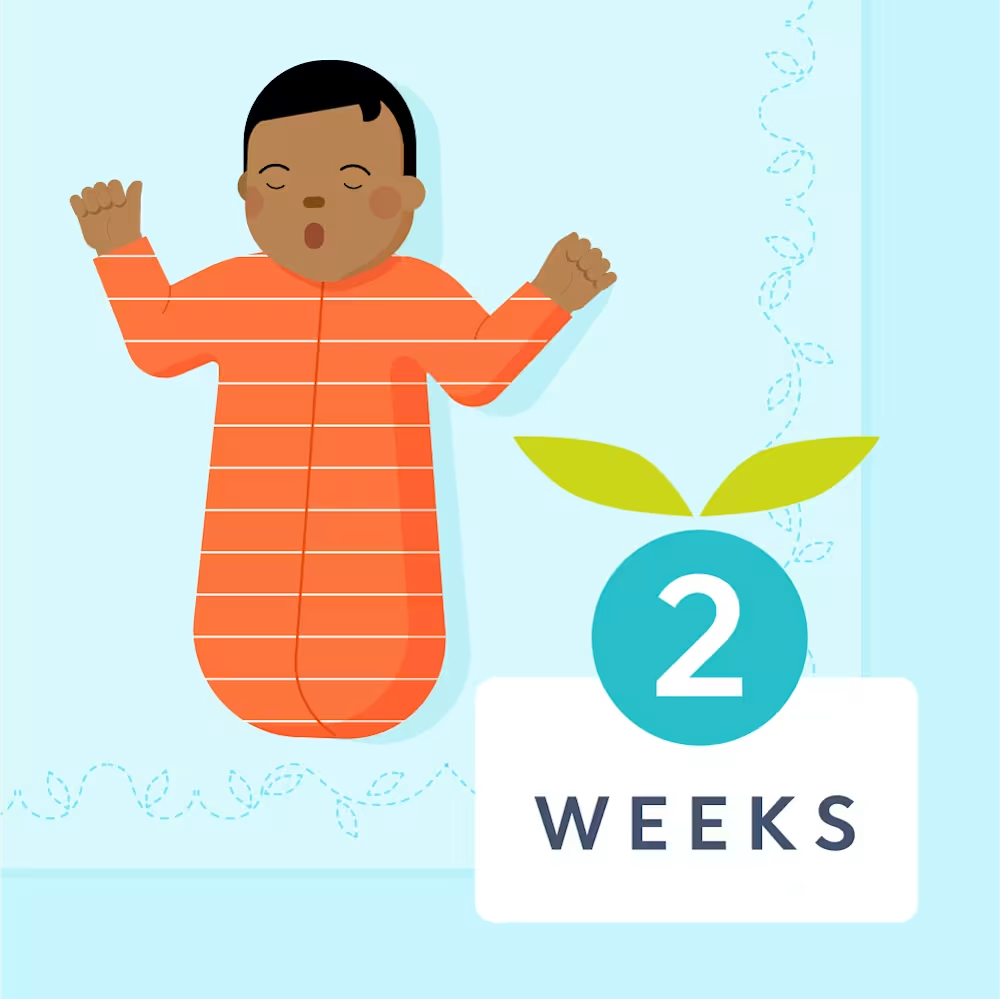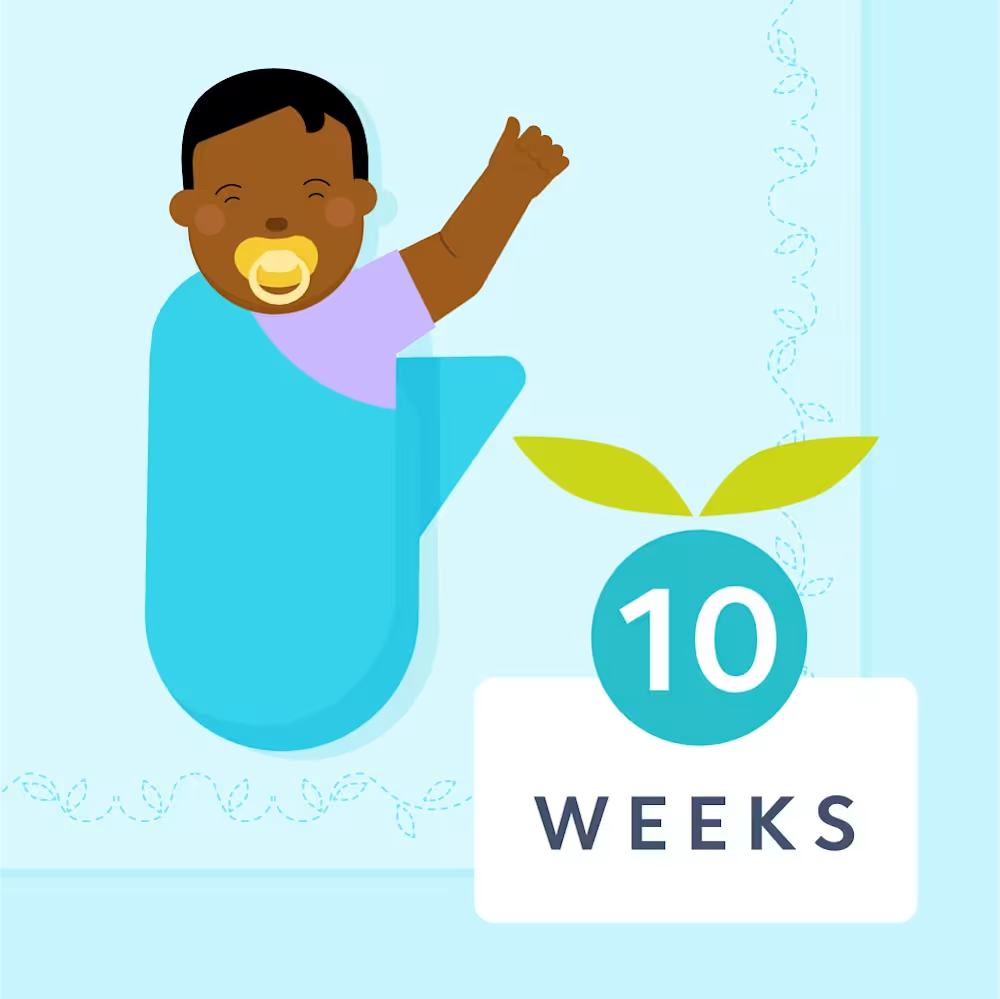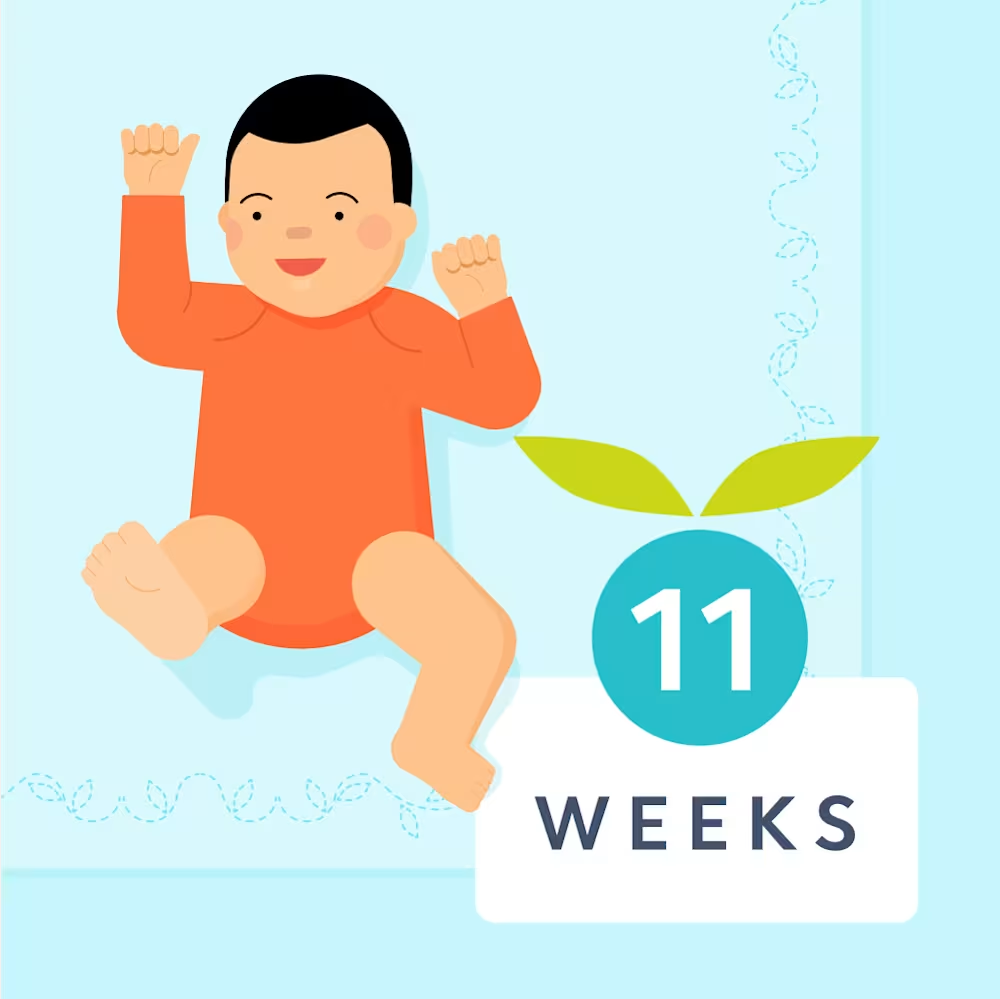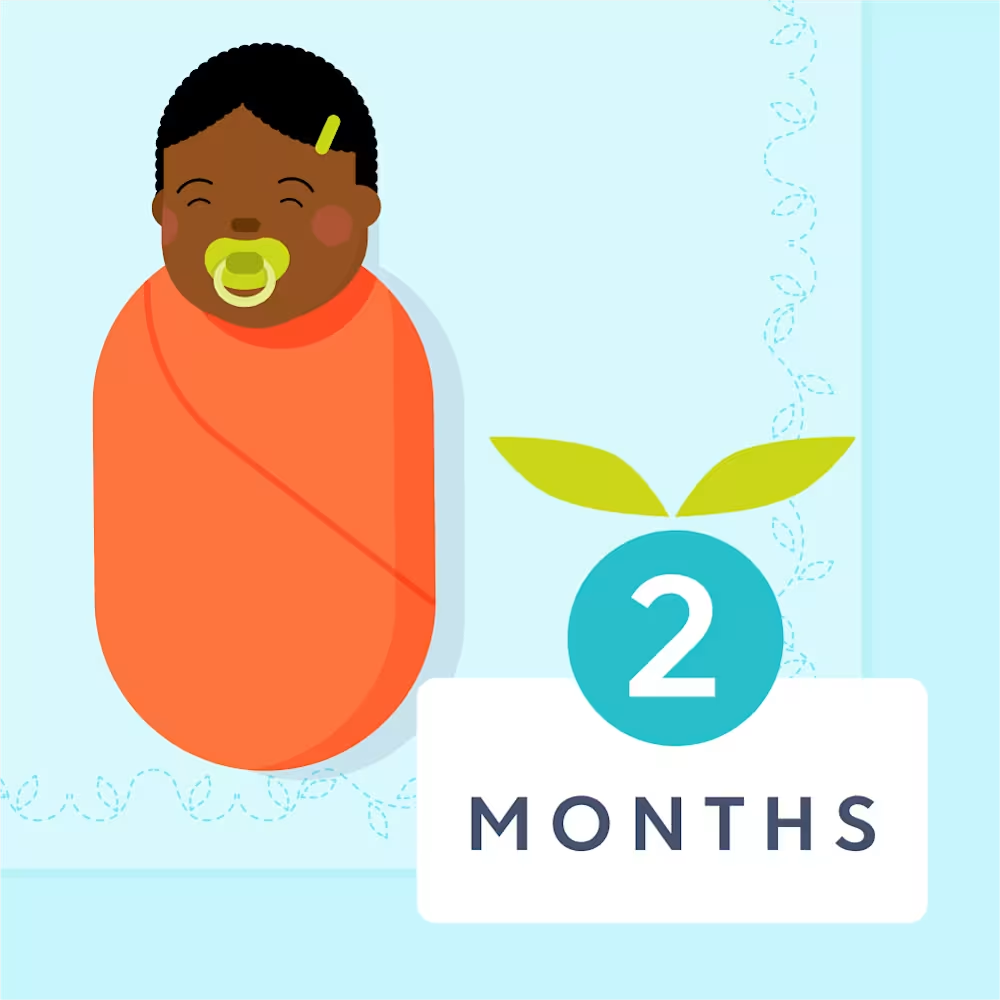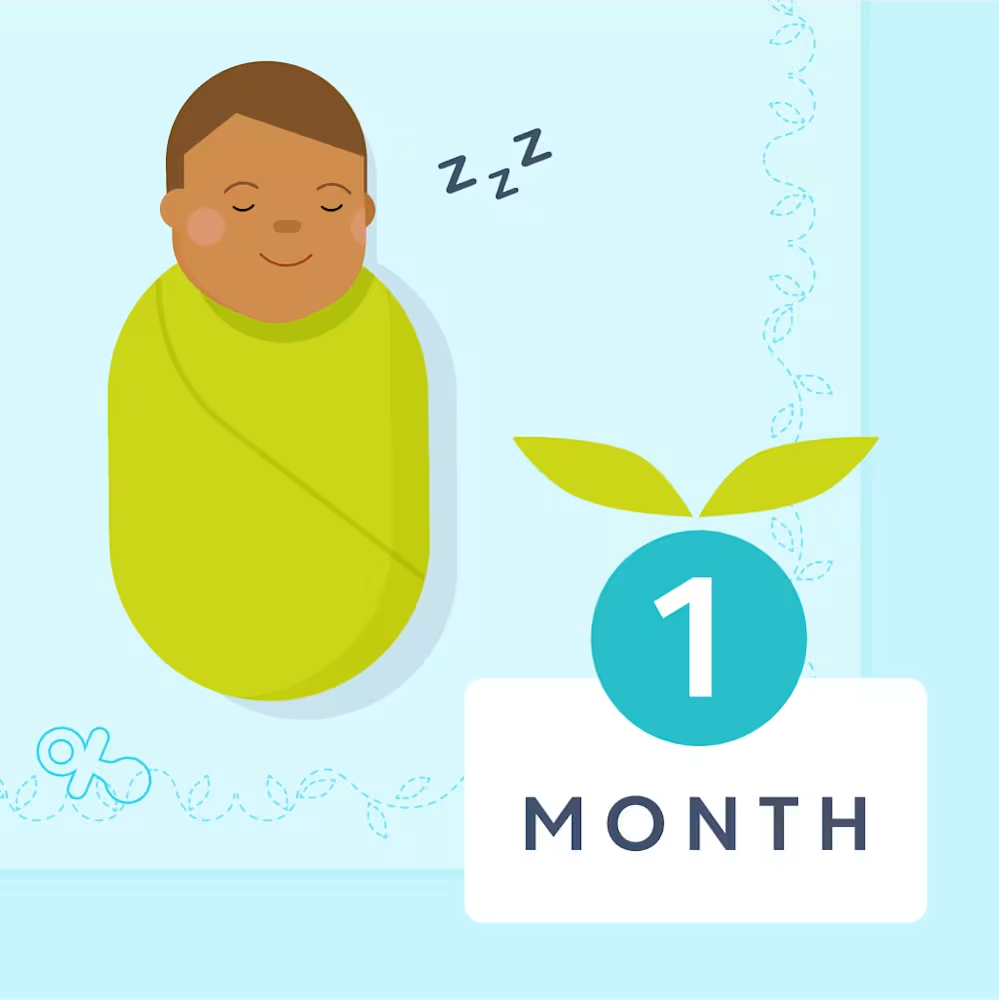Newborn sleep schedule by week: Nap and sleep guide
Updated Oct 16, 2025

It’s no secret that the newborn phase can be exhausting. While those first few weeks of snuggles and getting to know your baby are wonderful, the unpredictable sleep and night wakings can be tough! However, this period of chaotic sleep won’t last forever. Sleep typically becomes more predictable between 3 and 6 months, though it’s still common for babies to have irregularity when it comes to feedings and naps in this age range too. As your little one grows and develops, they can benefit from and you can start laying the .
In this article, we’ll provide you with a week-by-week look at how newborn sleep evolves over time, give you an idea of when sleep typically improves, and answer frequently asked questions about sleep in the first few months of life.
When can you get a newborn on a sleep schedule?
If your newborn’s sleep is quite unpredictable, you’re not alone! is usually dictated by sleep pressure (homeostatic sleep drive builds up in our body as our time awake increases) and hunger and is characterized by long and short periods of sleep (during the day and night!), late “bedtimes,” and multiple night wakes for feedings and comfort. Babies aren’t developmentally ready for consistent sleep schedules in the first few months of life because they’re not born with a mature circadian rhythm, which controls sleep-wake cycles [].
Most babies will be ready for a more regular 24-hour cycle of sleeping and eating when they’re closer to. In the meantime, little ones can benefit from routines, but we don’t recommend trying to get them on a sleep schedule yet.
Newborn sleep schedule by week
0 - 1 month
In these first weeks of life, it’s common to see sleep evenly distributed between day and night due to an immature circadian sleep-wake system. Naps will likely be unpredictable, but we encourage you to take advantage of this sleepy stage and go out and run errands or meet a friend for coffee, even if your little one falls asleep before you get back home. Just be sure to move them to a firm, flat surface when you return, in accordance with safe sleep guidance from the American Academy of Pediatrics (AAP) [].
1 - 2 months
During your baby’s second month of life, it’s not uncommon for day/night confusion [] to continue. If your little one seems to want to party all night and sleep all day, we recommend keeping your little one’s sleep space quiet and calm at night and bright and noisy during the day to help “fix” this. Note that day/night reversal typically resolves at around 8 weeks. Light exposure [] is also important for the establishment of normal circadian rhythms.
2 - 3 months
At around 2 months, day/night reversal has typically resolved and you may see some longer stretches of overnight sleep from your little one. While this is exciting, we still expect overnight wakes at this age for feedings and comfort. It’s common for naps to continue to be unpredictable at this age as well. However, closer to 3 months your child may have a more predictable 24-hour cycle of eating and sleeping.
Takeaway
Newborn sleep is typically chaotic since babies are born with immature circadian rhythms. This means your little one may sleep for 30 minutes and then 2 hours during their next sleep period and both would be considered normal.
Babies aren’t usually developmentally ready for a sleep schedule until around 3 - 4 months, when they may have more regular 24-hour cycles of sleeping and eating. Even then, sleep is often unpredictable for babies at this age and we recommend continuing to offer sleep based on wake windows and sleepy cues.
As your baby grows, their sleep patterns will change! The chaos of newborn sleep won’t last forever. Around 2 months, you may even see longer stretches of night sleep as day/night confusion usually resolves around this time.
Share article:
Note: The content on this site is for informational purposes only and should not replace medical advice from your doctor, pediatrician, or medical professional. If you have questions or concerns, you should contact a medical professional.
4 Sources
Share article:


